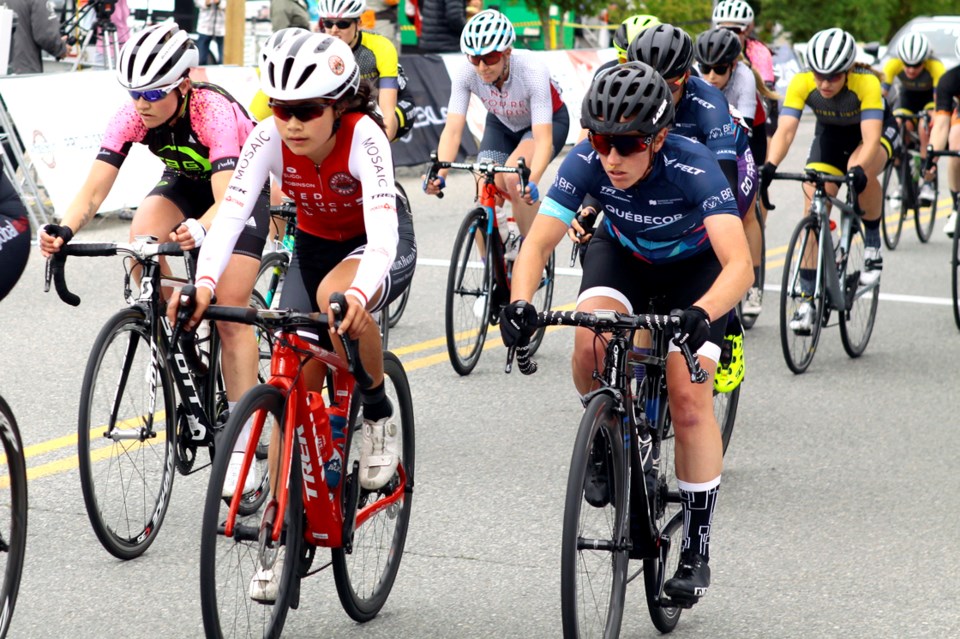Should Delta try to host a Tour de Delta this year?
A report by Parks, Recreation and Culture Director Carmen Gonzalez discussed at council on Monday, Dec. 13, recommended options be reviewed for the annual bicycle race and reported back for further discussion, including reducing the overall scope of the event.
Given continued uncertainty regarding COVID-19 and its impact on events, travel and international sport, as well as the overall cost, it is prudent to review the event in terms of other corporate priorities and continued community recovery and report back to council with input from the Parks, Recreation and Culture Commission, her report suggested.
The event has taken place in Delta since 2001 and is currently part of a regional series of races known as BC Superweek.
It was last held in July of 2019 with the COVID-19 pandemic prompting its cancellation last year.
“Staff have been working with the BC Superweek organizers over the past several months, who remain optimistic that an event could resume in 2022 to some degree. The Vancouver and Burnaby event organizers are in a position to move forward with an event for 2022, however, event organizers in New Westminster, Port Coquitlam and White Rock are still engaging their municipal councils regarding options for their cycling events,” the report states.
“Restrictions and regulations for international travel have resulted in significantly higher costs for participation due to quarantine rules. As a result, many teams have focused on safety of their athletes and the broader community and chosen to participate in local races, which has supported continued strength of the cycling community in British Columbia,” the report adds.
The report also noted that lower ridership would also likely result in lower revenues and sponsorship.
In 2019, the net actual cost for the Tour, which had three cycling events, was $300,000 once sponsorship and expenses were tabulated.
Delta's 2022 Financial Plan includes $236,000 set aside for the 2022 Tour.
While Delta has received a grant of $50,000 from the federal government for hosting a UCI sanctioned event, getting a grant every year is not guaranteed, the report warned.
While similar costs would be incurred regardless if one or two criterium races were run, a second race would result in additional costs, but should be offset by additional revenues from sponsorship and registration.
It’s estimated that Delta's net cost for two criterium races would be about $200,000. With the addition of the road race, the net cost would likely be in the range of $300,000-to-$400,000, depending on the degree of ridership and sponsorship.
Gonzalez told council the event could be modified to focus on two criterium races, one in North Delta and one in Ladner.
Once more information is available regarding other municipality's cycling event plan, staff will be in a better position to report back to council on a preferred option, Gonzalez said.
Prior to the pandemic, the event was already having a tougher time finding sponsorship dollars.
Seeking approval for staff to explore multi-year sponsorship opportunities, a 2018 report to council noted the role of sponsorship director had been vacant for a couple of years, putting “a tremendous amount of pressure on staff to secure sponsorship each year.”
Delta staff said there were also other factors that put additional pressure on staff in the overall delivery of the event.



